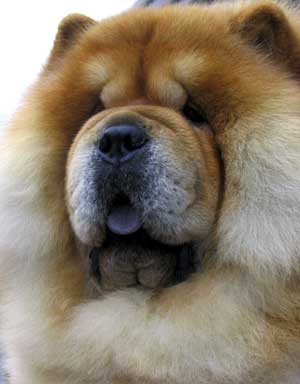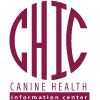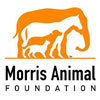Idiopathic Hypothyroidism
 Autoimmune thyroiditis is the most common cause of primary hypothyroidism in dogs. The disease has variable onset, but tends to clinically manifest itself at 2 to 5 years of age. Dogs may be clinically normal for years, only to become hypothyroid at a later date. The marker for autoimmune thyroiditis, thyroglobulin autoantibody formation, usually occurs prior to the occurrence of clinical signs. Therefore, periodic retesting is recommended.
Autoimmune thyroiditis is the most common cause of primary hypothyroidism in dogs. The disease has variable onset, but tends to clinically manifest itself at 2 to 5 years of age. Dogs may be clinically normal for years, only to become hypothyroid at a later date. The marker for autoimmune thyroiditis, thyroglobulin autoantibody formation, usually occurs prior to the occurrence of clinical signs. Therefore, periodic retesting is recommended.
The majority of dogs that develop autoantibodies have them by 3 to 4 years of age. Development of autoantibodies to any time in the dog’s life is an indication that the dog, most likely, has the genetic form of the disease. Using today's technology only a small fraction of false positive tests occur.
As a result of the variable onset of the presence of autoantibodies, periodic testing will be necessary. Dogs that are negative at 1 year of age may become positive at 6 years of age. Dogs should be tested every year or two in order to be certain they have not developed the condition. Since the majority of affected dogs will have autoantibodies by 4 years of age, annual testing for the first 4 years is recommended. After that, testing every other year should suffice. Unfortunately, a negative at any one time will not guarantee that the dog will not develop thyroiditis.
The registry data can be used by breeders in determining which dogs are best for their breeding program. Knowing the status of the dog and the status of the dogs lineage, breeders and genetic counselors can decide which matings are most appropriate for reducing the incidence of autoimmune thyroiditis in the offspring.
Dogs should not receive any type of thyroid supplementation for 3 months prior to thyroid testing.

 Autoimmune thyroiditis is the most common cause of primary hypothyroidism in dogs. The disease has variable onset, but tends to clinically manifest itself at 2 to 5 years of age. Dogs may be clinically normal for years, only to become hypothyroid at a later date. The marker for autoimmune thyroiditis, thyroglobulin autoantibody formation, usually occurs prior to the occurrence of clinical signs. Therefore, periodic retesting is recommended.
Autoimmune thyroiditis is the most common cause of primary hypothyroidism in dogs. The disease has variable onset, but tends to clinically manifest itself at 2 to 5 years of age. Dogs may be clinically normal for years, only to become hypothyroid at a later date. The marker for autoimmune thyroiditis, thyroglobulin autoantibody formation, usually occurs prior to the occurrence of clinical signs. Therefore, periodic retesting is recommended.


